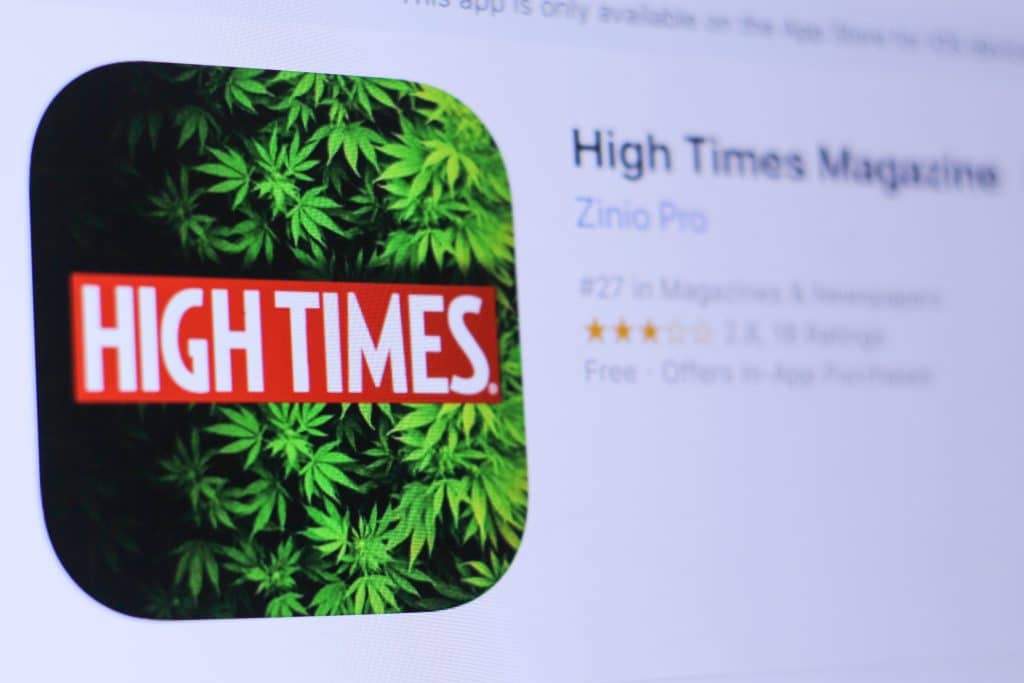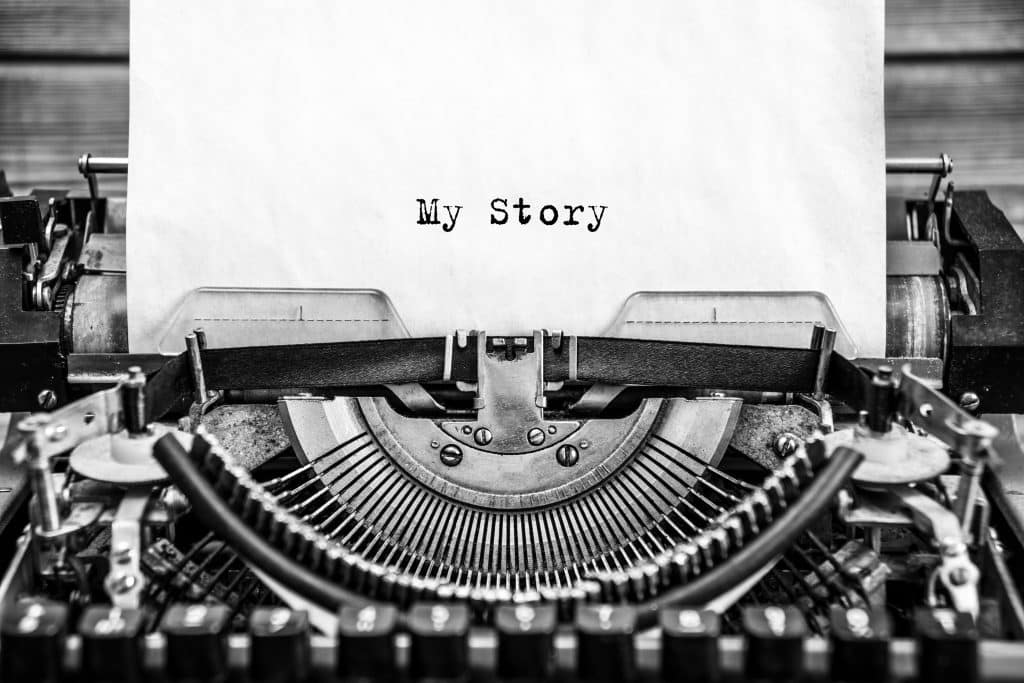We live in a world now where occupations are more lucid than ever. It’s not like the old days, where you had to start a job at 21 and continue with it, moving up the ladder, until retirement. Of course that remains a route for some people but, for others, they may shift and change their occupation every couple of years. Not only that, but there are jobs now that didn’t even exist 10 years ago – and this will most likely continue to happen as new innovative ideas are created every day.
When I was growing up, I didn’t think becoming a recreational drug journalist was even possible and yet here I am. In this article I will aim to help anyone who is interested in this remarkable profession and wants to know one route towards it. There are many routes out there, but this one is mine. Welcome to my journey.
To stay current on everything important happening in the industry, subscribe to The Cannadelics Weekly Newsletter. Also, it’ll get you premium access to deals on cannabis flowers, vapes, edibles, and much more! We’ve also got standout offers on cannabinoids, like HHC-O, Delta 8, Delta 9 THC, Delta-10 THC, THCO, THCV, THCP & HHC, which won’t kill your bank account. Head over to our “Best-of” lists to get these deals, and remember to enjoy responsibly!
What is a Recreational Drug Journalist?
Content writer, copywriter, cannabis writer, drug journalist – whatever you want to call it – it isn’t exactly a profession that everyone knows about. In fact, it wasn’t until about 3 years ago that I realized that this job even existed. Back then, I never imagined it possible that someone could make a living from writing articles about recreational drug culture, laws and products. it just didn’t seem possible to me.
Well, that is what recreational drug journalism is. It is a journalist and writer who focuses on all things surrounding those kinds of substances. Some of the most well known publications for this kind of writing are Vice and the High Times. Vice doesn’t only focus on drug news, they also delve into far more than that, but a large proportion is based around it. The High Times is one of the most successful drug publications, with a sole focus on that topic.
“High Times is the definitive resource for all things cannabis. From cultivation and legalization, to entertainment and culture, to hard-hitting news exposing the War on Drugs, High Times has been the preeminent source for cannabis information since 1974. Our publication has featured original works from some of the great names in counterculture… That history of excellence continues to this day with a focus on exposing the truth, presenting the public with the latest information and research findings, and advocating for a legal and safe cannabis industry.”

I have been a recreational drug journalist for about 3 years now and I learn more and more every day. But I want to impart some of the wisdom that I’ve picked up over the years, with the hope that it can help any aspiring journalists out there. Even if one person out there learns something then this article won’t have been completely and utterly futile.
What do you Need?
As I’ve said before, I’m far from an expert – but I think I know enough to be able to pick out the key skills and assets that someone needs for this job. Without them, not only will you probably not succeed, but you also won’t enjoy yourself. I believe enjoying a job is half the way to being any good at it.
Knowledge
Knowledge is a crucial element of being a recreational drug journalist. It usually entails being up to date with all news and law changes around the world, as these can shift and change constantly. For instance, in the last few years, Malta, Thailand, Luxembourg and many other nations have drastically changed their stance on drugs. Also – it helps to follow trends, as you’ll then have a better understanding of how to predict them. Which country will be the next to go against the grain and legalize a recreational substance? This is something you constantly have to be thinking about. Culture is also a massive part of it. The job requires a knowledge of film, TV, music and celebrities that surround drug culture. Some would refer to this as ‘stoner culture’, which is based all around the world, but predominantly in America. Leafly writes:
“The path of Cheech and Chong helped break cannabis consumption into the minds of the mainstream, but it also plays on some of the harmful stereotypes that work against cannabis legalization. It’s important to laugh and not take ourselves too seriously, while at the same time, realizing the capability and responsibility we have to shape the image of cannabis consumers.”
The US has one of the most booming legal cannabis markets since 18 out of the 50 states legalised cannabis and it’s here where a lot of the cultural references stem from. Think about Seth Rogen, Jonah Hill, Harold & Kumar, Snoop Dogg, Cheech & Chong, Michael Pollen – all of these creatives are considered global drug icons. Not only do many of these individuals act and produce content that contains drug references, but also many of them have done in the push towards drug legalizations. The knowledge a content writer needs can be learned and can be studied, you’re never going to know everything. I know a thousand times more now than I did when I started, and I hope this will be the case in 3 years time. You never stop learning. But, as I say, a basic knowledge and understanding is pretty crucial.
The Joy of Writing
Another integral tool in any drug journalists toolkit is a real and genuine joy of writing. The job is mainly writing – with some research prior – so without a pleasure in typing away at your laptop you probably won’t have a lot of fun. The reason why I write ‘joy’ rather than ‘skill’ is because I believe both are synonymous. Some may not agree, but for me, being good at writing usually means you enjoy it and vice versa.
However, of course there will be times when you write about a ‘less interesting’ topic, at which case you’ll certainly need to rely on your writing ability. Everyone has their own voice, so it’s basically impossible to lay out a set of ‘how to be a good content writer’ rules. Nonetheless, I think clarity, humor, simplicity and a genuine intrigue in the topic from the writer are essential. If you write about something you’re actually interested in, usually that interest will be infectious and will be passed down to the reader. It’s also often that content writers are dealing with some complex materials, that is why it’s important to try and translate it with simplicity and clarity. I personally enjoy the process of finding a topic that I believe needs to be written about, doing the research and then creating a story or line or argument. For me, that is one of the best parts of the job.
My Personal Journey
I always had a passion for creative writing and studied it both at school and at university. I never delved into journalism through that, but instead loved the creation of narratives and arguments. During the covid pandemic, which came just after my studies had finished, I began searching for jobs. I wanted something flexible, which also allowed me to follow my other passions – such as travelling the world. The digital nomad lifestyle seemed like an impossibility, especially in London. Nonetheless, I began looking for writing jobs and ended up working for a dry herb vaporizer company in London as a content writer. It was here that I learnt a great deal about – not only vaporizers – but also cannabis and the culture around it.

I wrote several articles each week to boost the SEO of the company, meaning I would use certain key words to try and increase the likelihood of being searched on google. It sounds more complex than it actually is, but through the research needed for each article I would slowly understand and know more. As I built up more knowledge around cannabis, products, culture and other recreational drugs, I began writing for other publications. I found it fun finding new ideas for articles, each time felt like I was writing a short-story – based around research. I then started writing for Cannadelics and I felt like they gave me the freedom and support I needed to be the best I could be. As a recreational drug journalist, you never stop learning, and that’s something important to know in any profession.
Conclusion
It’s important to realize that no job is unattainable, however hard or odd it may seem. There are always many paths to every profession, so I hope that by showing mine it has helped whoever is reading. Plus, by mentioning the passions and skills that you will need to do this job successfully and happily, I hope you now understand what the role entails a little more. Enjoyment is key in whatever you do during your limited time on this earth.
Hello readers! We appreciate you joining us at Cannadelics.com, a top choice news platform for independent coverage of the growing cannabis and psychedelics landscapes of today. Come by the site whenever possible for updates on current and world-changing events, and head over to the Cannadelics Weekly Newsletter, so you’re always up on what’s going down.









